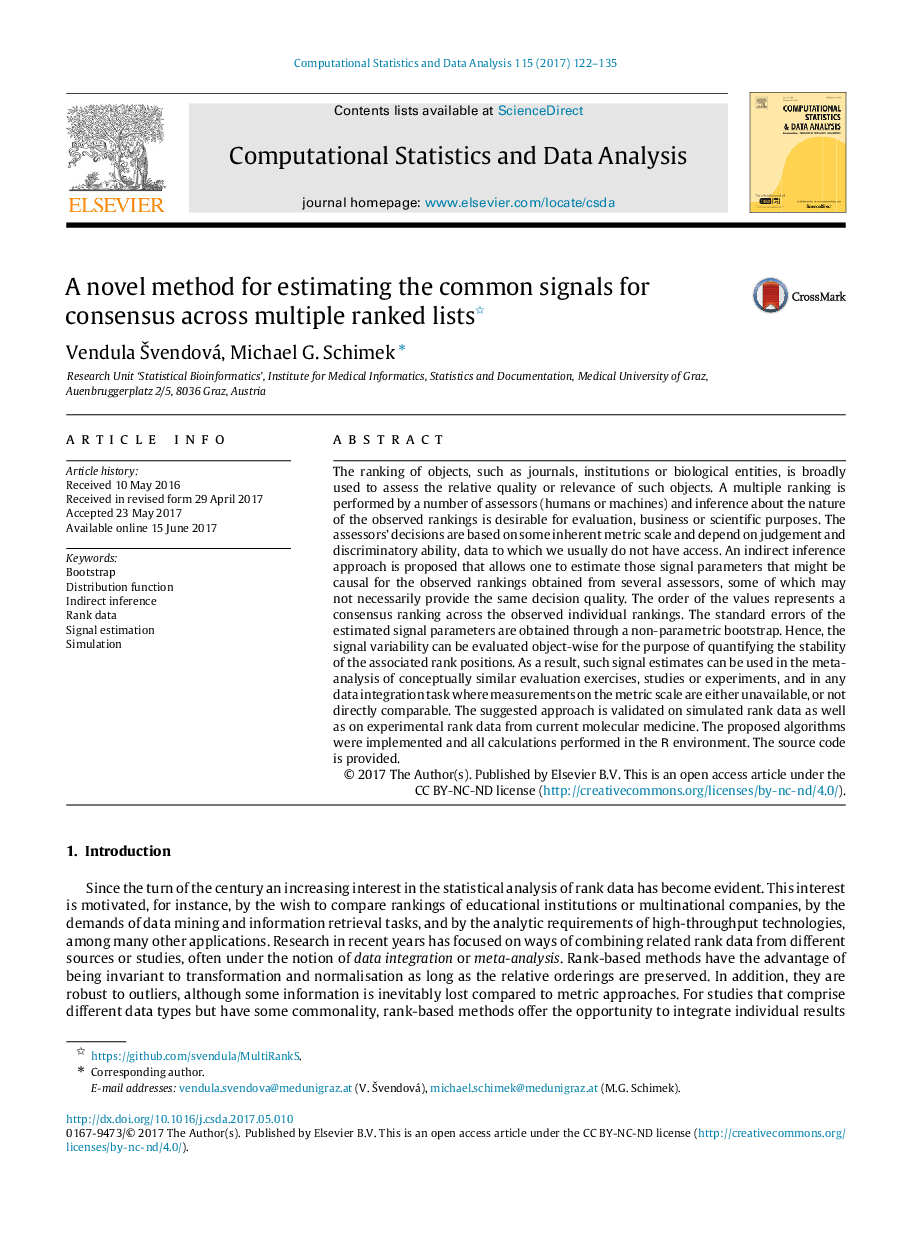| Article ID | Journal | Published Year | Pages | File Type |
|---|---|---|---|---|
| 4949241 | Computational Statistics & Data Analysis | 2017 | 14 Pages |
Abstract
The ranking of objects, such as journals, institutions or biological entities, is broadly used to assess the relative quality or relevance of such objects. A multiple ranking is performed by a number of assessors (humans or machines) and inference about the nature of the observed rankings is desirable for evaluation, business or scientific purposes. The assessors' decisions are based on some inherent metric scale and depend on judgement and discriminatory ability, data to which we usually do not have access. An indirect inference approach is proposed that allows one to estimate those signal parameters that might be causal for the observed rankings obtained from several assessors, some of which may not necessarily provide the same decision quality. The order of the values represents a consensus ranking across the observed individual rankings. The standard errors of the estimated signal parameters are obtained through a non-parametric bootstrap. Hence, the signal variability can be evaluated object-wise for the purpose of quantifying the stability of the associated rank positions. As a result, such signal estimates can be used in the meta-analysis of conceptually similar evaluation exercises, studies or experiments, and in any data integration task where measurements on the metric scale are either unavailable, or not directly comparable. The suggested approach is validated on simulated rank data as well as on experimental rank data from current molecular medicine. The proposed algorithms were implemented and all calculations performed in the R environment. The source code is provided.
Related Topics
Physical Sciences and Engineering
Computer Science
Computational Theory and Mathematics
Authors
Vendula Å vendová, Michael G. Schimek,
